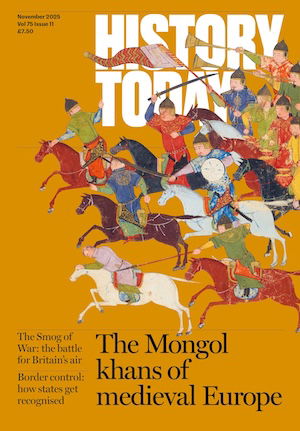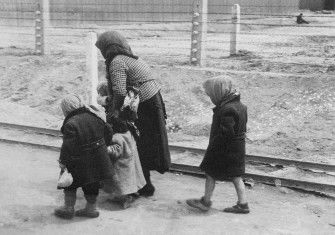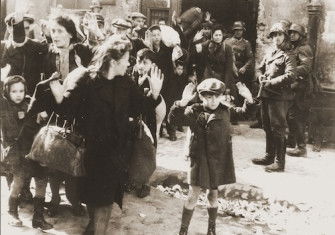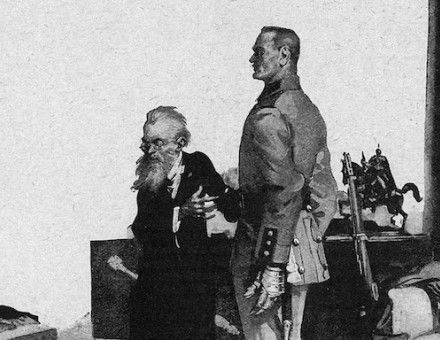Never Again by Andrew I. Port review
‘Real world’ German responses to postwar genocide.
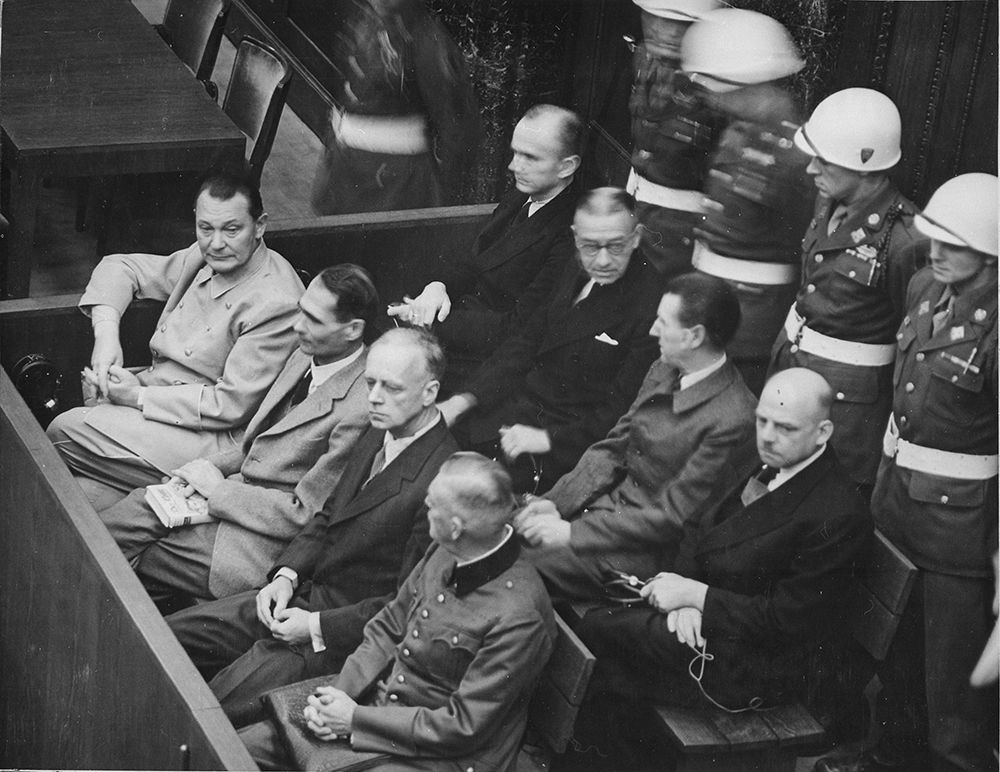
In his recent book, Dan Stone characterised the Holocaust as ‘unfinished history’, even in Germany, ‘the consummate country of contrition’. Does facing up to the past actually contest dangerous ideas in the present? Andrew Port’s new book focuses attention away from sentimental repentance and vacuous memorialisation to the matter of ‘real world’ German responses to postwar genocide.
In 1995, as news of the mass killings of Muslim men and boys by Bosnian Serb forces after the fall of Srebrenica reverberated across the international community, Joschka Fischer of the pacifist German Green Party summoned the spectre of genocide: ‘German history still counts as a weighty political argument for me in the present.’ Did Germans, as Fischer implied, have a special obligation not just to remember, but to act? In German, Vergangenheitsbewältigung means confronting the past, Vergangenheitsbewältigung der tat means doing so in deed. Port shows that many Germans responded to persecution ‘der tat’.
The wording employed in the Genocide Convention (1948) is notoriously cryptic, but it imposes a duty on states that have acceded to the Convention to ‘prevent and punish’ the international crime of genocide. For any acceding state, these duties are fraught with legalistic roadblocks – most notably, state sovereignty. For Germans, both before and after unification, the legal dilemmas of genocide became entangled with contradictory ethical and political currents. Did recognition of the Holocaust, a genocide perpetrated by Germans, as a shameful symbol of all genocides obligate Germans to shoulder a unique responsibility to act? But if action meant armed intervention, did this historic ‘mortgage’ clash with a concomitant revulsion for war making? Might recognition of genocides in Asia, Africa and southwest Europe diminish the supposedly unique status of the Holocaust? What genocide is not unique? Conversely, did a national preoccupation with the historical crimes of the Third Reich blunt the horrors perpetrated by the Khmer Rouge, Bosnian Serb militias and Hutu Interahamwe?
A veritable thicket of doubts sprang up in the wake of such ghastly events. If the duty to prevent required the use of force – and it is hard to conceive a different scenario – would a reunited Germany relapse into revanchist militarism? How could ‘Never again Auschwitz’ be reconciled with ‘Never again war’? To explore these clashing moral leitmotifs, Port makes use of interviews with key activists as well as drawing on a daunting array of archival sources.
Port’s powerful chapters on German reactions to the Cambodian genocide are revelatory. As the ghastly crimes of the Khmer Rouge were exposed in the aftermath of the Vietnamese invasion of Cambodia at the end of the 1970s, Germany remained divided – and reactions on either side of the border were often sharply distinct. East German ‘socialists’ struggled to find a language for communist atrocities until they discovered they could blame China. West Germans used the Khmer Rouge as a cudgel to beat the East. As Port notes the so-called Historikerstreit – the debate on how to incorporate the Nazis into German historiography – that erupted in 1986 had some of its roots in the debate about the Cambodian genocide. As reports of the atrocities committed by Pol Pot and his henchmen gushed through Western media, German commentators began referring to Cambodia as ‘Asia’s Auschwitz’. By coincidence, the American miniseries ‘Holocaust’ began screening in West Germany in January 1979. In the same year, the Association for the German Language voted Holocaust as ‘Word of the Year’.
But this could not cloak a ‘shrill backlash’ to an ‘influx’ of Asian refugees supposedly putting German values ‘under siege’ and, in West Germany, the foundation of the first anti-immigrant grass roots organisations dedicated to stopping Überfremdung, ‘foreign infiltration’. Germany is, of course, not at all unique in the way compassion is crushed by xenophobia. Even after unification and the swelling tide of ‘memory work’, German responses to the humanitarian crises in Bosnia and Rwanda demonstrated much the same muddle of outrage, hand wringing and hesitation as any other state, except that Germans consistently made rhetorical reference to ‘the shadow of Nazi crimes’. Thus, Hutus became ‘barbaric war criminals’ and Tutsis the ‘Jews of Central Africa’. Port, however, shows that individual Germans who were committed to what the controversial philanthropist Rupert Neudeck called ‘radical humanism’ acted with exemplary courage. His account of the work of Monika Hauser, the Cologne gynaecologist who was ‘jolted into action’ after learning of the mass rapes carried out by militias in Bosnia, is powerful. Hauser’s commitment to grossly abused and traumatised women was inspired by her discovery that her much loved grandfather, a Nazi party member, had raped her grandmother.
In a terse epilogue, Port reflects on the turbulent currents coursing through Germany’s Zeitenwende (watershed moment) provoked by the war in Ukraine. He notes that the fierce national debate about sending weapons to Ukraine was no longer singularly framed by allusions to the Third Reich and the Holocaust. Is Germany, he asks, finally a ‘normal nation’? Never Again is ambitious, original and richly evidenced. Port is especially good on the case of the former Jesuit Neudeck, whose organisation sent hundreds of German doctors and nurses to assist Cambodian refugees. Neudeck told Port that his work was a ‘semiconscious effort’ to atone for Nazi crimes but, equally, to surpass the exertions of other nations and put German aid workers ‘on top of the world’. Most importantly, Port offers an innovative contribution in the atrophied terrain of ‘memory studies’.
Never Again implies that Walter Benjamin’s ‘Angel of History’ is, at last, turning away from sentimental memorials and sentimental solemnity – and looking forward.
Never Again: Germans and Genocide after the Holocaust
Andrew I. Port
Harvard University Press, 416pp, £30.95
Buy from bookshop.org (affiliate link)
Christopher Hale is the author of Deception: How the Nazis Tricked the Last Jews of Europe (The History Press, 2018).

